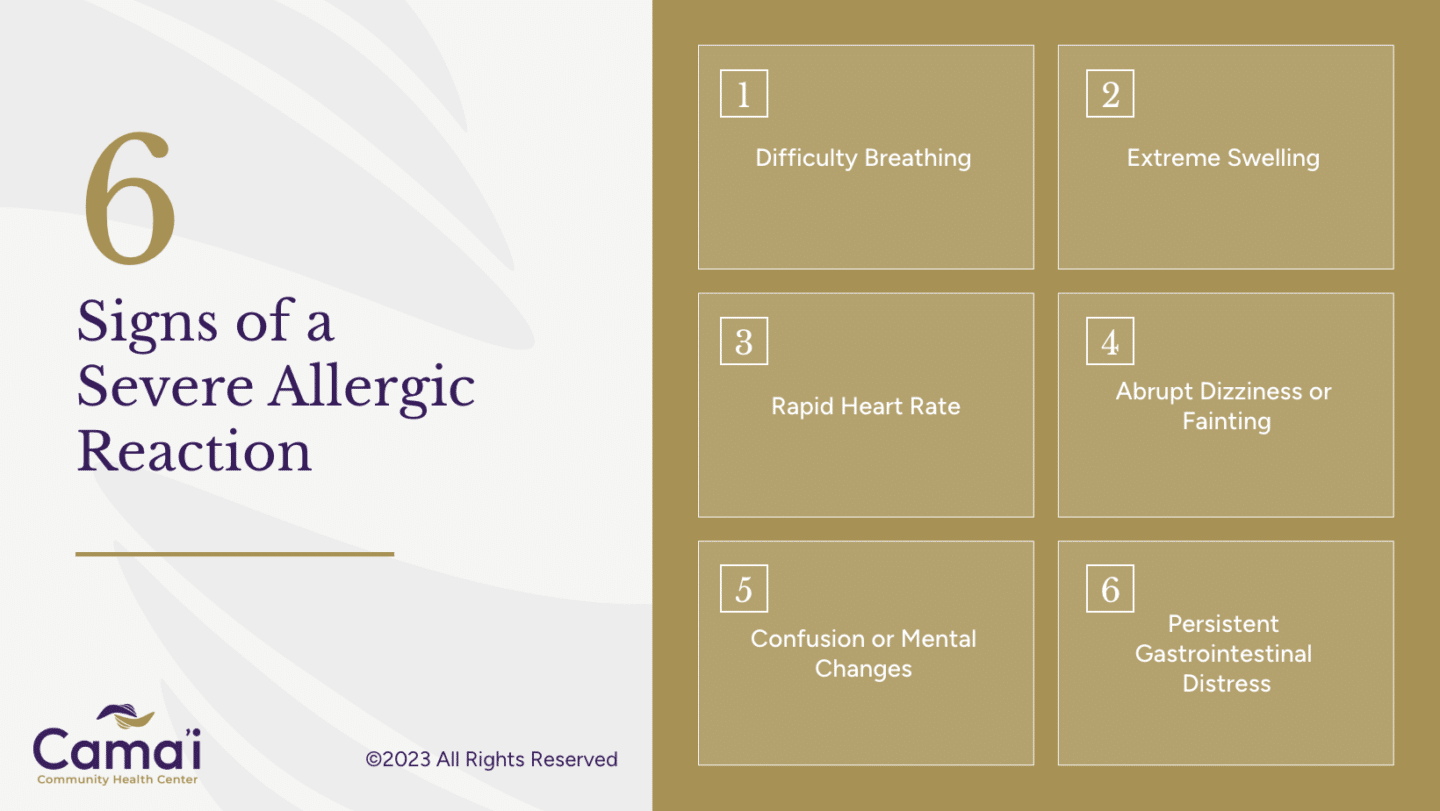Sneezing, sniffling, runny nose, chest tightness, and even abdominal pain can all be signs of an allergic reaction. But while these signs and symptoms are considered common, how do you know when an allergic reaction is a cause for concern?
Allergic reactions are a common occurrence for many individuals, ranging from mild discomfort to severe life-threatening situations. And while most allergic reactions can be managed with over-the-counter medications or by seeking medical advice from a primary care physician, there are times when a trip to the nearest emergency room is absolutely necessary.
Here, we’ll explore why it’s essential to not only recognize the signs of an allergic emergency but to know when to seek immediate medical attention.
Do you need help managing seasonal allergies or have you experienced an allergic reaction? Contact Cama’i today and schedule an appointment.
Understanding Allergic Reactions
Allergies are the body’s immune system’s response to substances it perceives as harmful — substances commonly known as “allergens.” As such, common allergens can be found in a variety of sources such as food, medications, insect bites, pollen, animal dander, and many others. But when you come into contact with an allergen, if you’re allergic, your immune system releases chemicals, such as histamines, triggering a range of reactions — ranging from mild symptoms to severe or life-threatening.
Common symptoms of allergic reactions include itching, hives, sneezing, nasal congestion, watery eyes, and skin rashes. In most cases, these symptoms are manageable and can be alleviated with antihistamines or other appropriate medications. However, in certain situations, allergic reactions can quickly escalate and become medical emergencies.
6 Signs of an Allergic Emergency

An allergic emergency, also known as anaphylaxis and sometimes referred to as anaphylactic shock is a severe and potentially life-threatening allergic reaction. It typically occurs rapidly after exposure to an allergen (common with bee and insect stings or peanut allergies) and often requires immediate medical treatment.
Regardless of the allergen, the signs of an allergic emergency can vary from person to person. But the following symptoms are indications that a trip to the emergency room is necessary:
- Difficulty Breathing
Wheezing, shortness of breath, or a feeling of tightness in the chest can be signs of a severe allergic reaction. If breathing becomes increasingly difficult, it is crucial to seek medical assistance immediately. - Extreme Swelling
Swelling of the face, lips, tongue, or throat can indicate a severe allergic reaction. This swelling can impede breathing and requires urgent medical attention. - Rapid Heart Rate
A significantly increased heart rate, along with other symptoms, may suggest anaphylaxis. If the heart rate is racing or irregular, it is essential to seek medical help promptly. - Abrupt Dizziness or Fainting
Feeling lightheaded, dizzy, or experiencing fainting spells after an allergic exposure could be a sign of a severe reaction. These symptoms should not be ignored and warrant immediate medical evaluation. - Persistent Gastrointestinal Distress
Severe vomiting, diarrhea, or abdominal cramping, especially after ingesting a potential allergen, may indicate an allergic emergency. Seek medical assistance if these symptoms persist or worsen rapidly. - Confusion or Mental Changes
Allergic reactions affecting the brain can cause confusion, disorientation, or changes in behavior. These signs may indicate a severe reaction and necessitate emergency care.
It is important to note that allergic reactions can vary in severity and may progress rapidly. If you or someone around you is experiencing symptoms that concern you, it is always better to err on the side of caution and seek medical help immediately. Timely intervention can make a significant difference in managing allergic emergencies.
What Actions Should Be Taken During an Allergic Emergency?
During an allergic emergency, it is crucial to take immediate action to ensure the safety and well-being of yourself or the affected individual. And keep in mind that severe symptoms are common with many allergic reactions, but it is a person’s quick actions that may be the deciding factor between life and death.
Actions to take during an allergic emergency include:
- Call emergency services: Dial the emergency number in your country (e.g., 911 in the United States) immediately. Inform the operator that it is an allergic emergency and provide details about the situation, including the symptoms, potential allergen exposure, and any relevant medical history of the affected person.
- Administer epinephrine (if available): If the person experiencing the allergic reaction carries an epinephrine auto-injector (such as an EpiPen), follow the instructions provided to perform an epinephrine injection. This is common when an allergy sufferer is prone to severe reactions — such as anaphylactic shock. Epinephrine helps counteract severe allergic reactions by constricting blood vessels and opening airways. Remember to always carry and store epinephrine according to the instructions and check the expiration date regularly.
- Help the person into a comfortable position: If the individual feels lightheaded or faint, assist them in lying down on their back with their legs elevated, if possible. This position can help improve blood flow and reduce the risk of fainting.
- Loosen tight clothing: Remove any tight clothing, particularly around the neck area, to ensure unrestricted breathing.
- Stay with the person: Do not leave the individual alone during an allergic emergency. Offer reassurance and support while waiting for medical help to arrive.
- Monitor vital signs: Keep an eye on the person’s breathing, pulse, and level of consciousness. If their condition worsens or they become unresponsive, be prepared to perform CPR if necessary.
- Do not give oral medications or fluids: During an allergic emergency, avoid giving the person anything to eat or drink as it may interfere with medical treatments that could be required.
- Gather information: If possible, gather information about the allergen that caused the reaction, the time of exposure, and any relevant medical history. This information can assist medical professionals in providing appropriate treatment.
- Follow medical instructions: Once emergency medical services arrive, provide them with all the relevant information and follow their instructions, and get out of the way. They are trained to handle allergic emergencies and will be able to provide the necessary care.
Remember, the aforementioned actions are general guidelines and should not replace professional medical advice. If you are unsure about the severity of the situation or what steps to take, always consult with a primary healthcare professional — or call emergency services.
Prompt action and seeking immediate medical help are crucial in managing allergic emergencies and for ensuring the best possible outcome.
Let the Experts Help Manage Your Allergies at Cama’i Community Health Center
Severe allergic reactions are nothing to disregard as these life-threatening situations can result in long-term hospitalization and even death. If you or someone you know is experiencing any of these signs mentioned here, it’s important to reach out for medical assistance promptly or contact emergency services to ensure appropriate support and assistance.
At Cama’i Community Health Center, we serve many residents in our remote community with a variety of medical needs. And we understand how living in a remote region can be a huge challenge that may prevent you from seeking the medical attention that you require. But you don’t have to deal with allergies or severe allergic reactions alone with Cama’i at your side.
When you come to Cama’i for your health needs, you’ll have expert diagnosis and treatment available to you and your loved ones — right when you need it most. And you won’t need to worry about suffering endlessly from allergies or severe allergic reactions.
Are you or your loved ones in need of support with allergies or need help with managing allergic reactions? Contact Cama’i Community Health Center today and speak with a medical expert.


